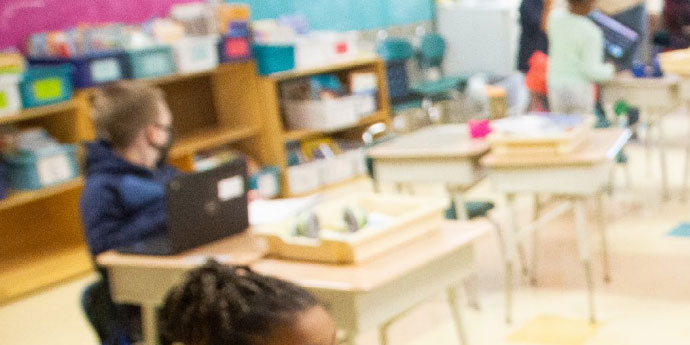
“Equity” and COVID joined forces to eliminate standards in school.
Approach Paloma Esquivel’s Los Angeles Times article about schools’ “ditching the old way of grading” with the appropriately skeptical eye, and it produces a curious effect. On one hand, teachers’ desire seems reasonable to conduct a true assessment of what students have learned rather than relying on a rigid grading system that reflects their ability to perform tasks at particular times during the school year.
On the other hand, every time the word, “equity,” pops up, the reader may wonder what that has to do with the subject at hand. Is the claim really that, say, race intrinsically affects how well students can keep up with assignments and testing milestones but does not affect the ability to learn the subject matter by the end of the year? That’s the implication that has people like Andrew Sullivan responding thus:
Eradicate measurable standards and everything is fine. This is core to CRT: the end of standards.
Returning to the two hands described above, the strategy appears to be to motte and bailey through to this eradication of standards. The proposition (the bailey) is that grading standards are contrary to social justice, but when this argument is challenged, disputants retreat to the motte, which is the claim that the important goal is to ensure that students understand the material by the end of the class.
About midway through the article, Esquivel inadvertently shines light on a puzzle many of us have been pondering for the past year. Why has critical race theory (CRT) seemed to emerge at the same time as the COVID-19 pandemic? One might hypothesize that CRT and the extreme reaction to COVID were only coincidental and incidental to some other goal (like unseating the President of the United States). Another possibility is that the crisis of COVID presented an opportunity to push for unrelated goals, like the “equity” agenda. That’s the piece that Esquivel puts into place here:
[Educational grading consultant Joe] Feldman, a former teacher and administrator who wrote the book “Grading for Equity,” had been working for several years with school districts across the country as they reconsidered grading policies. In October and November of the 2020-21 academic school year, he suddenly found himself fielding a “tidal wave” of calls from districts, as teachers issued progress reports and realized that Ds and Fs were skyrocketing.“Our traditional grading practices have always harmed our traditionally underserved students,” Feldman said. “But now because the number of students being harmed was so much greater, it got people more aware of it and ready to tackle this issue.”
One needn’t be very cynical at all to think the “tidal wave” of inquiries came from administrators and teachers looking for ways to sell lower of standards to cover up the terrible results they were producing (despite an actual increase in funding). It is doubtful that they expected students to finish the year in the same place they otherwise would have; the districts just needed some way to convince students, parents, and other stakeholders that some other grading system is better capturing the learning that students continued to do. As Sullivan suggests, if there are no measurable standards, then everything is fine, which is great for well paid professionals in a failing educational system.
Feldman’s experience indicates that this institutional incentive makes our education system vulnerable to a prior agenda tied to CRT, “equity,” and “anti-racism.” That step returns us to an analysis in this space last month suggesting that the idea might be to eliminate objective standards so that the natural human tendency to measure and compare would shift to less-relevant factors, like identity, where differences can be exploited for political advantage. This, in turn, points to the underlying goal of preventing students from being able to function in a Western society so as to bring about its collapse.
Featured image from the RI Dept. of Education.

[…] events have shed light on ideas and principles that used to be opaque and abstract. Yesterday, I observed how radicals took advantage of the education system’s vulnerability to accelerate their […]